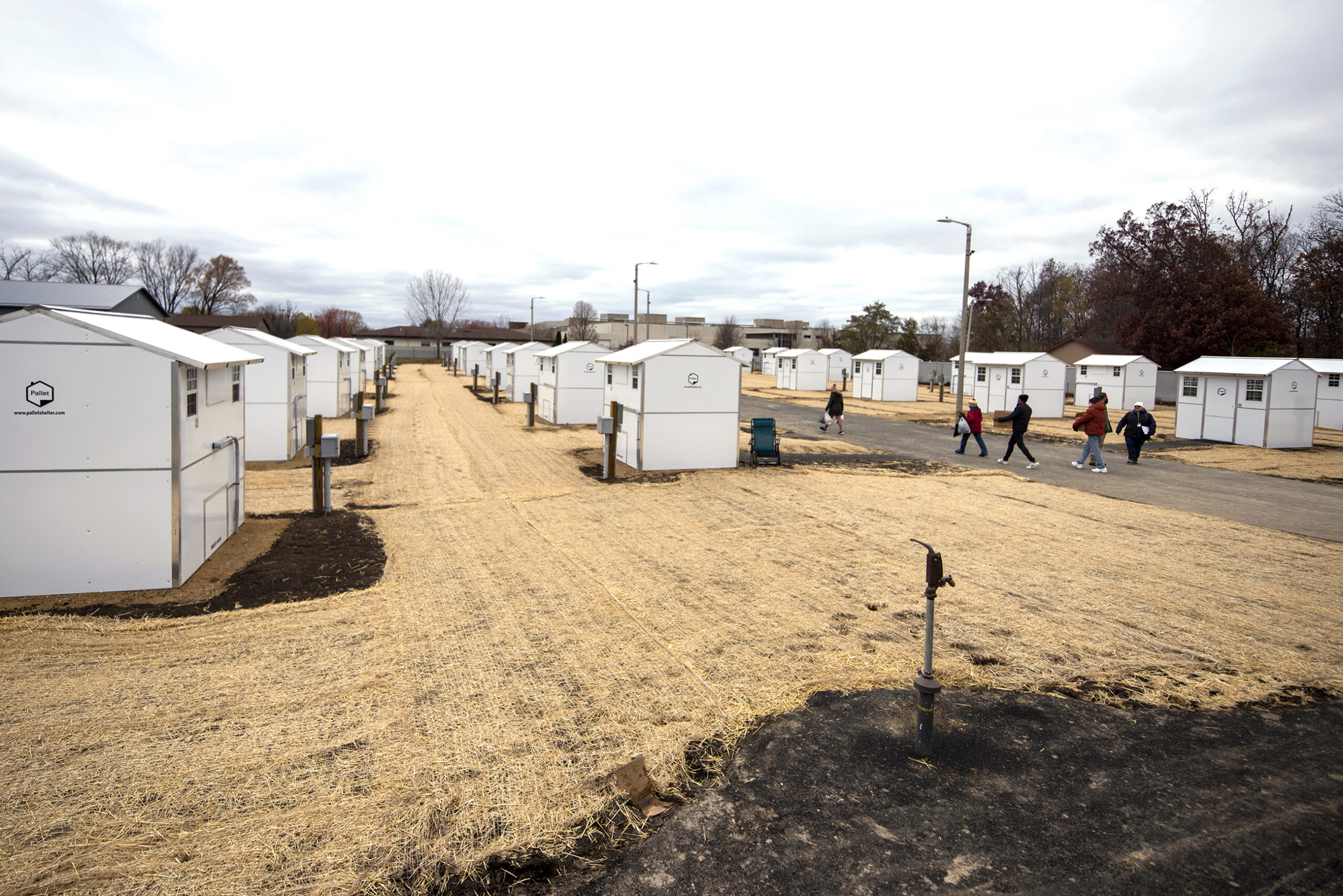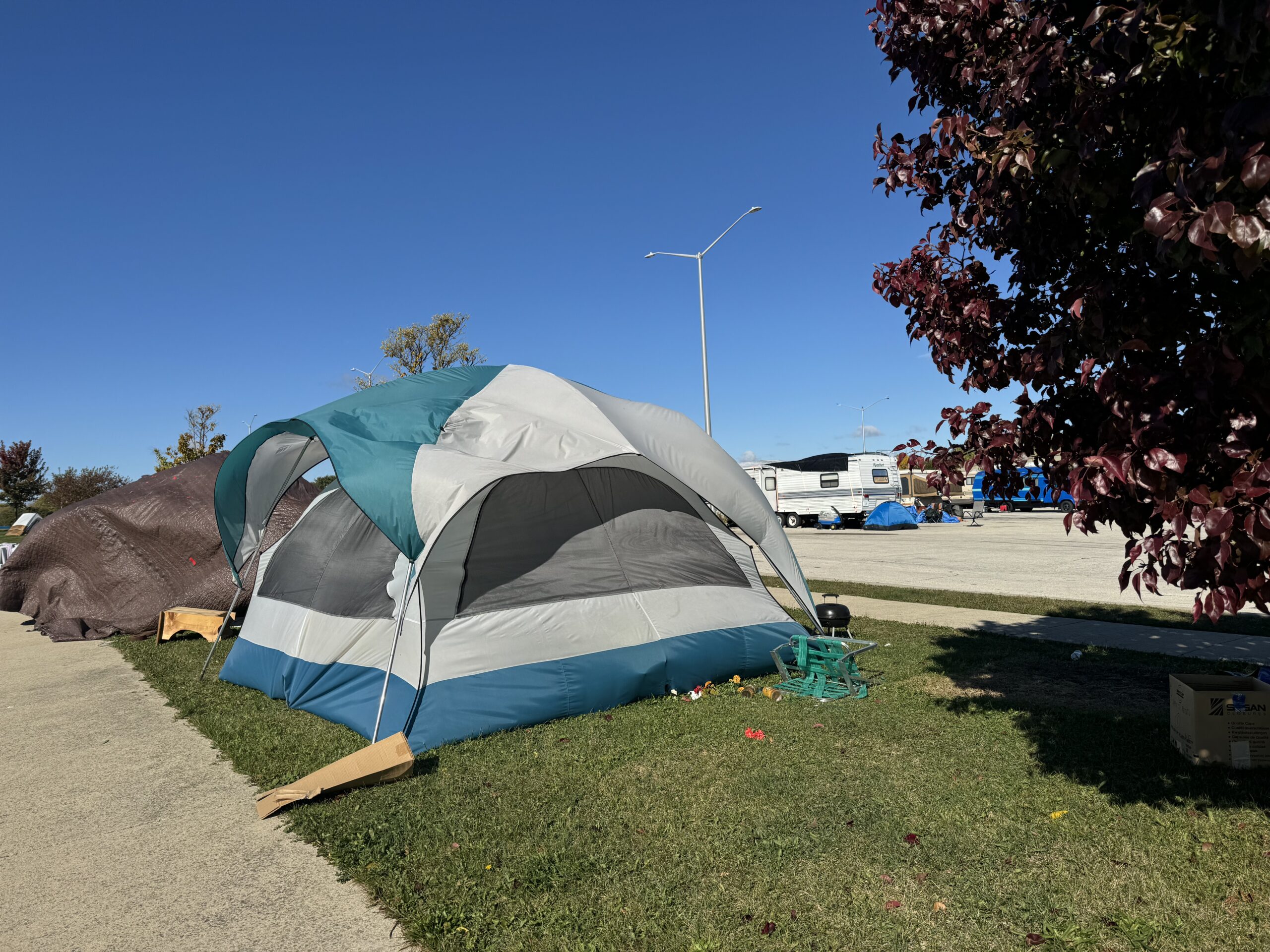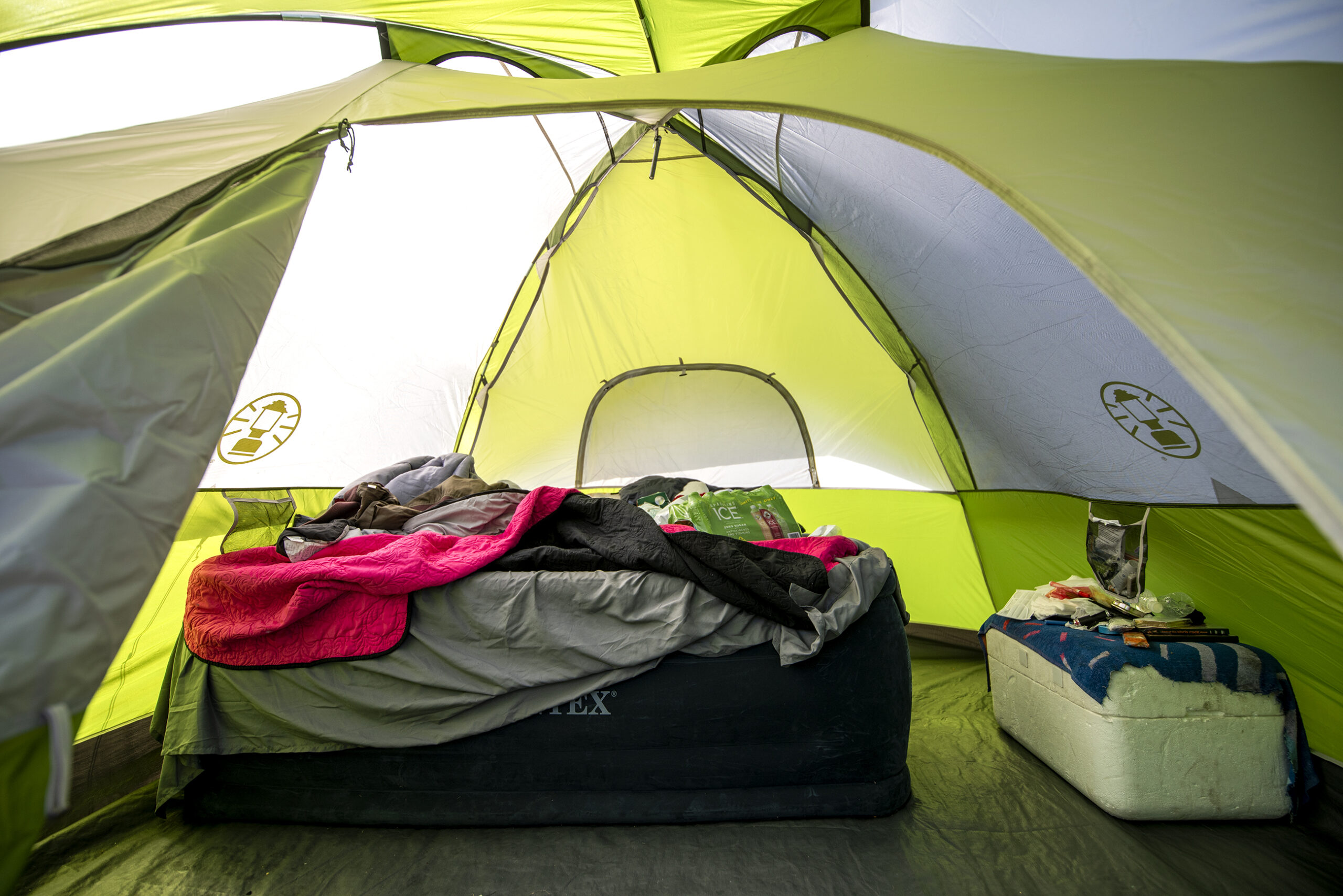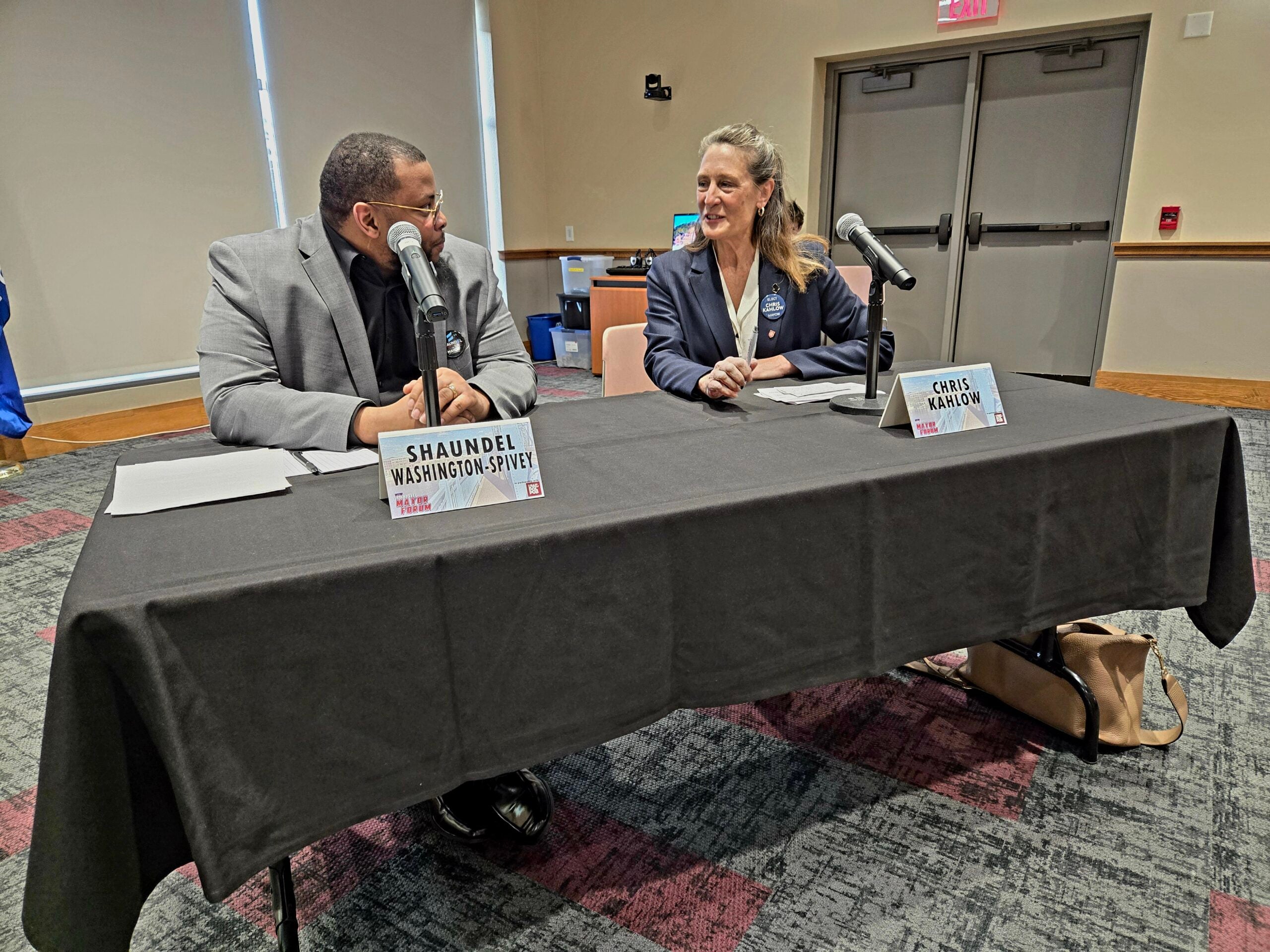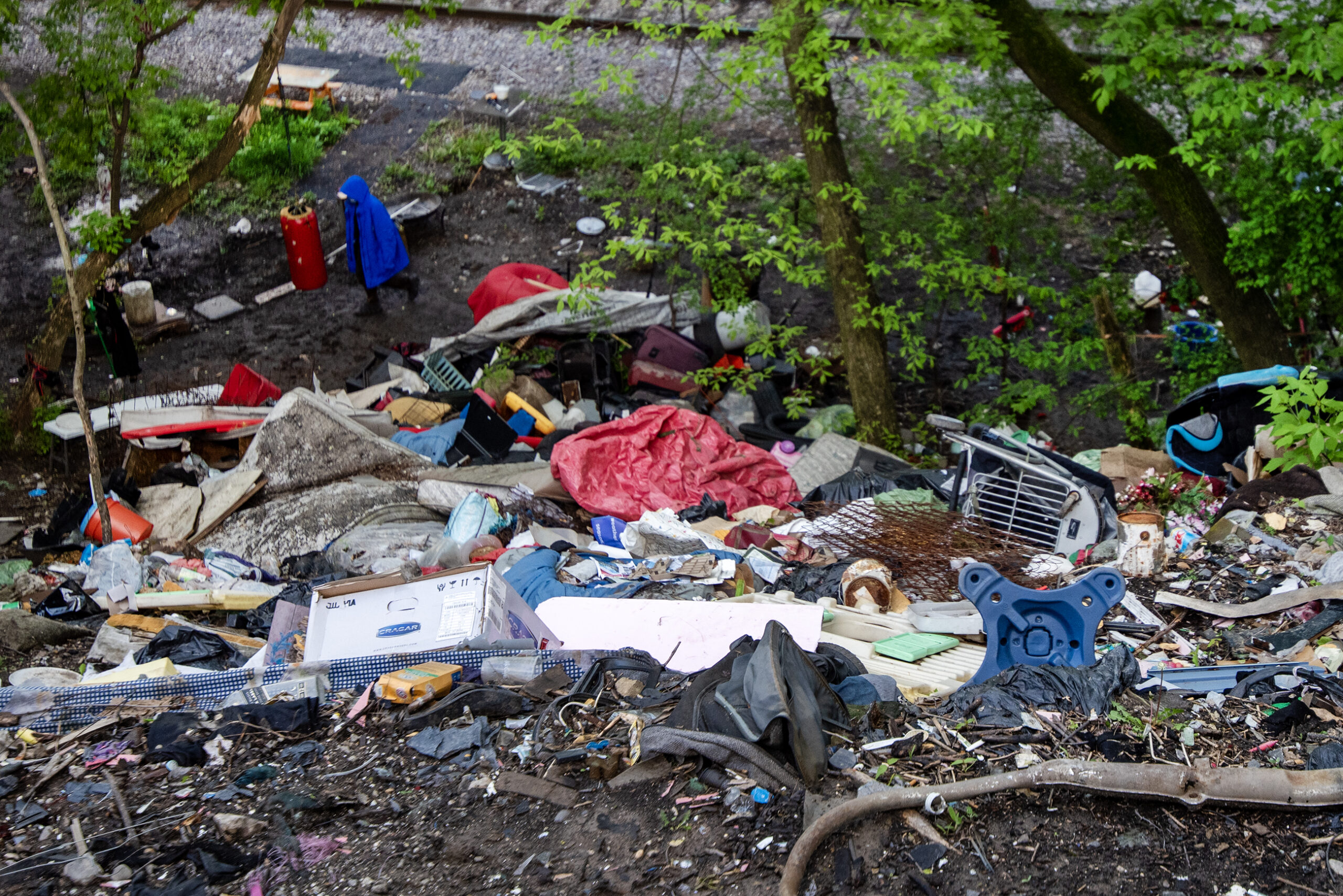The City of La Crosse is moving forward with plans to turn a south side motel into bridge housing for people who are homeless.
The La Crosse City Council approved a plan to spend $1.5 million of the city’s funds from the federal American Rescue Plan to purchase and renovate the Maple Grove Motel for a temporary bridge housing project.
Brian Sampson, the city’s homeless services coordinator, said the motel has 26 rooms and will be able to house 32 people. He said city officials are planning to add temporary, one-room shelters to the site as a way to increase capacity.
News with a little more humanity
WPR’s “Wisconsin Today” newsletter keeps you connected to the state you love without feeling overwhelmed. No paywall. No agenda. No corporate filter.
“We hope to provide services and oversight and support on the property so that way people can continue with the ultimate goal of getting into (permanent) housing,” Sampson said. “I think this property really gives us a lot of flexibility and a lot of creativity in the future.”
He said details of the project are still being worked out, but officials are hoping a nonprofit organization will operate the new housing site for two to three years.
It’s the latest step in how La Crosse has used federal pandemic recovery funding to support an influx of people experiencing homelessness in recent years.
In November, the council allocated $700,000 to rent rooms at the Econo Lodge motel to house around 100 people through the winter. That shelter project, which was operated by a nonprofit organization called Karuna, has served 133 individuals and eight families, according to a presentation given at the council meeting.
Sampson said creating the winter shelter at the Econo Lodge has allowed agencies to take a more personalized approach to offering support, especially for people who are struggling with a mental health issue or addiction.
“Really taking that trauma-informed approach to be sensitive to those needs and help get people on their feet… So that way, they can go on and be successful without always needing a high level of support,” Sampson said. “I think that’s one of the biggest takeaways (from the winter shelter), is there isn’t just going to be one solution that solves everything.”
He said the number of people who are homeless in La Crosse is the highest it’s ever been, and many communities in Wisconsin and across the country are experiencing similar surges.
La Crosse is not the only Wisconsin city to tap into federal recovery dollars in response to the growing need.
The City of Madison used $2 million in federal COVID-19 relief funding to build a new bridge housing project called the Dairy Drive Campsite, which has 30 prefabricated shelters that have heating and electricity. Some advocates and people experiencing homelessness have criticized the new site for being located on the edge of the community and disconnected from public transit and other services.
La Crosse’s new bridge housing site is similarly located on the edge of the city and on a busy thoroughfare that is challenging for pedestrian traffic. Sampson said officials are aware of these challenges and are hoping to have solutions for accessing transportation and services before opening the new site.
Michael Basford is director of Wisconsin’s Interagency Council on Homelessness. He said other communities like Ashland used the funding to open their first emergency shelter or set up intervention programs to keep people from becoming unsheltered.
Basford said the federal funding has allowed cities to take action on homelessness rather than accepting it as normal for the community. And he hopes those tools and services will stick around even after the recovery dollars are spent.
“I’m certainly hopeful that we’ll be seeing as a result of all of this is a long-term commitment for communities to address the need for the most vulnerable in their communities, and to not just return to a normal state of crisis for homelessness,” Basford said.
He said a long-term approach will take funding not only from the federal government but a commitment from state and local dollars as well.
In La Crosse, Sampson said the city is working with La Crosse County on a long-term bridge housing project. But for now, officials are preoccupied with setting up the Maple Grove Motel site and figuring out how to transition people from their current rooms at the Econo Lodge.
Sampson said the city already knows the new bridge housing will not be ready by April 1 when the winter shelter program ends. But it’s unclear where people will go in the meantime.
Earlier this month, La Crosse’s Board of Park Commissioners approved a plan to make Houska Park an official campsite. It’s the same park city officials relocated individuals living in tents to last summer in order to get them out of the downtown area. But Sampson said officials are still exploring all options.
Wisconsin Public Radio, © Copyright 2025, Board of Regents of the University of Wisconsin System and Wisconsin Educational Communications Board.

